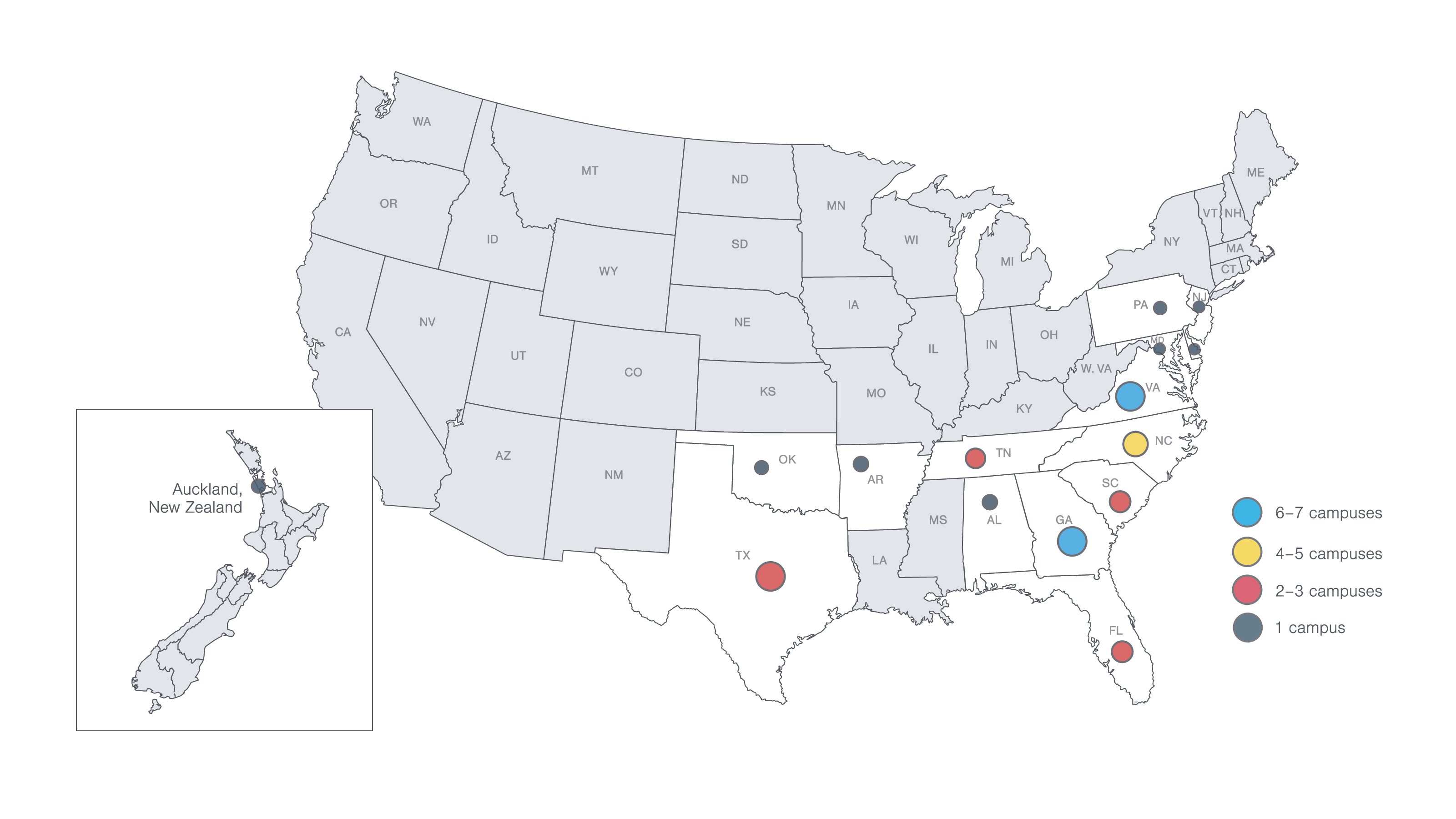Associate in Arts Accounting
PROGRAM AT A GLANCE
Why get an AA in Accounting from Strayer?
Gain a broad understanding of the science of accounting and dive deep into what it takes to thrive in business. The associate degree in accounting from Strayer gives you a solid foundation with career-building skills to help you start your job search and keep moving forward.
Take the first step to pursue a career in accounting
More than simply numbers, accounting is a combination of analytical skills, cash flow management and strategic thinking. Strayer’s Associate in Arts (AA) in Accounting explores all aspects from analyzing and recording business transactions to preparing financial statements and employee payroll. When you’re ready to further your education, you can apply all the earned credits toward a Bachelor of Science in Accounting at Strayer.
Skills you’ll learn in a Strayer AA in Accounting program
- Generate financial reports, based on accounting principles.
- Analyze accounting information to determine its value, uses and limitations.
- Determine the role of accounting functions in key aspects of business, including communication, information systems and evidence-based decision-making.
- Make ethical decisions that support business practices, policies, procedures and integrity.
Earn your degree from an accredited university
Strayer University is an accredited institution and a member of the Middle States Commission on Higher Education (MSCHE or the Commission) www.msche.org. Strayer University’s accreditation status is Accreditation Reaffirmed. The Commission’s most recent action on the institution’s accreditation status on June 22, 2017 was to reaffirm accreditation. MSCHE is recognized by the U.S. Secretary of Education to conduct accreditation and pre-accreditation (candidate status) activities for institutions of higher education including distance, correspondence education, and direct assessment programs offered at those institutions. The Commission’s geographic area of accrediting activities is throughout the United States.

Associate in Arts in Accounting cost breakdown
- 20 courses, $1555 per course
- $65 technology fee each term
- $150 one-time degree conferral fee
- $100 resource kit per course
Estimate the cost of your degree
How much can I save on a AAAC?
Estimate the cost of your degree
How much can I save on a AAAC?
Expected Graduation
...
Approximate Total
...
*Student is required to take two courses per quarter during disbursement period
PREPARING YOUR RESULTS
Time commitment
Calculate the approximate time commitment of your degree.
| Course load | ... courses/term |
| Classroom time | ... hours/week |
| Terms per year | ... terms |
| Terms to graduation | ... terms |
Cost analysis
Calculate the approximate cost of your degree
| Tuition | ... |
| Books | ... |
| Fees | ... |
| No-cost gen ed | $0 |
| Transfer credits | ... |
| Transfer Credit Scholarship | $0 |
| $4K scholarship | $0 |
| Strayer Learn and Earn Scholarship | $0 |
| Approximate total | ... |
What you’ll learn in Strayer’s Associate in Arts in Accounting program
Explore key business concepts and gain both foundational and intermediate accounting skills Strayer’s Associate in Arts (AA) in Accounting. Beyond accounting, a strong liberal arts component will help you develop essential soft skills employers value, such as communication and critical thinking. Upon graduation, all credits from this program may be applied toward Strayer’s Bachelor of Science in Accounting.
AA in Accounting program requirements
- 27 credit hours in major AA in Accounting courses
- 58.5 credit hours in general education courses
- 4.5 credit hours in elective courses of your choosing
Convenient online learning
Our online programs give you the flexibility to earn your degree from just about anywhere there’s reliable internet access – day or night. Through our online portal, you’ll be able to:
- Watch lectures and complete coursework
- Submit assignments and take exams
- Communicate with professors and classmates
- Access student resources and support
How long will it take to earn an Associate in Arts in Accounting?
- There are 20 courses, each 11 weeks long.
- How many courses you take per term and eligible transfer credits from an accredited institution (if applicable) will determine how long the overall program will be.
- Strayer University credits are expressed in quarter hours.
- One quarter hour of credit is granted for the successful completion of 10 contact hours per course.
- The standard requirement for one course is for students to spend 13.5 hours in weekly work, both in and outside of the classroom. For each week of a quarter, one hour of classroom or online course activity and a minimum of two hours of outside study/preparation time per credit hour are built into the design of each course. Strayer’s course design uses this requirement to meet applicable regulatory standards. This includes preparation, activities and evaluation over 10 weeks for a total of 135 hours of student work.
How to apply for an Associate in Arts degree at Strayer?
An admissions officer can help you choose the right program, register for classes and transfer credits.
Here’s what you’ll need to get started:
A completed application and enrollment agreement
A high school diploma or equivalent
A valid, current and legible government-issued photo ID
Spring classes start on April 6
Learn more about Strayer University’s admissions process.
Transferring to Strayer from another university?
Transfer up to 14 eligible classes from a prior college or university to your associate in arts degree, saving time and money.
Strayer welcomes international students
Strayer University is proud to have hosted more than 4,000 international students from over 143 countries. Earn your degree in the U.S. or completely online in your home country – it’s your choice.


Campus locations
Come to a campus near you for guidance and support. You’ll have access to helpful resources, a supportive community and plenty of spaces to learn and grow.
Ready to take the next step?
Your admissions officer is here to guide you through every step of the process, from completing your application to choosing your concentration.
Experience the Strayer difference
Start-to-finish support
Your admissions officer and student services coach will motivate and support you from enrollment to the day you graduate.
A real student community
Experience online and live discussions, receive mentoring, expand your professional networks and create life-long friendships.